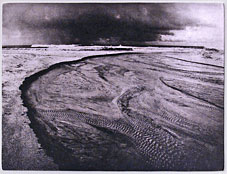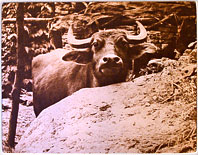Vaclav Havel, the playwright-statesman and former president of the Czech Republic, who died last Dec 18, understood from the inside out the meaning of the fall of communism. One of the great dramas of our time, its significance for the West is no less than its significance for the lands behind the former Iron Curtain. In a speech to the World Economic Forum in 1992, Havel reminded us:
‘For many years, decades in fact, the West was defined against the background of the communist world. As a common enemy and a common threat, it was this communist world that kept the West united both politically, and in terms of security arrangements. Against its will, it also helped the West strengthen, cultivate and develop its time-tested principles and practices, like civil society, parliamentary democracy, the market economy, and the concept of human and civil rights. Confronted by the gloomy, dangerous and expansionist world of communist totalitarianism, the West was continually required to prove its commitment to freedom, truth, democracy, broader cooperation and growing prosperity. In other words, the communist world was instrumental in the West’s own self-affirmation….
‘As the Eighties became the Nineties, the whole Second World, as it used to be known, exploded and, in a rather frenzied fashion, collapsed in upon itself. In its place, a crater has suddenly opened up before the eyes of an astonished world, one that is now spewing forth a lava of post-communist surprises. Mixed up in this lava, we will find a long-forgotten history coming back to haunt us, a history full of thousands of economic, social, ethical, ethnic, territorial, cultural and political problems that remained latent and unnoticed under the surface of totalitarian boredom.’
The collapse of communism took everyone by surprise, releasing long-suppressed ethnic and other grievances and re-aligning (to use Havel’s metaphor) the geo-tectonic plates of the continent. But Havel focuses on what he regards as the more lasting effects for human thought and freedom everywhere:
‘The end of communism is, first and foremost, a message to the human race. It is a message we have not yet fully deciphered and comprehended.
‘In its deepest sense, the end of communism has, I believe, brought a major era in human history to an end. It has brought an end not just to the nineteenth and twentieth centuries, but to the modern age as a whole.’
What Havel somewhat wishfully had in mind was the end of the idea that civil society could be engineered. It seemed to Havel that those who overthrew communism understood from their own experience, and all who witnessed it understood sympathetically, that using the State to force-march entire societies into so-called rational organization could never work. But those who seek dominion over others will always find some principles, be they communist, liberal, conservative, relativist, or fiscal to justify their own aggrandizement. Those who bear the hardships imposed on them by Statist intrusions into their lives can, if they will see for themselves, pierce these various guises and rationalizations. Havel’s view of history helps in this endeavor:
‘The modern era has been dominated by the culminating belief, expressed in different forms, that the world — and Being as such — is a wholly knowable system governed by a finite number of universal laws that man can grasp and rationally direct for his own benefit. This era, beginning in the Renaissance and developing from the Enlightenment to socialism, from positivism to scientism, from the industrial revolution to the information revolution, was characterized by rapid advances in rational, cognitive thinking. This, in turn, gave rise to the proud belief that man, as the pinnacle of everything that exists, was capable of objectively describing, explaining and controlling everything that exists, and of possessing the one and only truth about the world. It was an era in which there was a cult of depersonalized objectivity, an era in which objective knowledge was amassed and technologically exploited, an era of belief in automatic progress brokered by the scientific method. It was an era of systems, institutions, mechanisms, and statistical averages. It was an era of freely transferable, existentially ungrounded information. It was an era of ideologies, doctrines, interpretations of reality, an era where the goal was to find a universal theory of the world, and thus a universal key to unlock its prosperity.
‘Communism was the perverse extreme of this trend. It was an attempt, on the basis of a few propositions masquerading as the only scientific truth, to organize all of life according to a single model, and to subject it to central planning and control regardless of whether or not that was what life wanted.
‘The fall of communism can be regarded as a sign that modern thought — based on the premise that the world is objectively knowable, and that the knowledge so obtained can be absolutely generalized — has come to a final crisis. This era has created the first global, or planetary, technical civilization, but it has reached the limit of its potential, the point beyond which the abyss begins. I think the end of communism is a serious warning to all mankind. It is a signal that the era of arrogant, absolutive reason is drawing to a close and that it is high time to draw conclusions from that fact.’

Berlin Wall, 1989 (photo: Sue Ream)
And yet..
‘We are looking for new scientific recipes, new ideologies, new control systems, new institutions, new instruments to eliminate the dreadful consequences of our previous recipes, ideologies, control systems, institutions and instruments. We treat the fatal consequences of technology as though they were a technical defect that could be remedied by technology alone. We are looking for an objective way out of the crisis of objectivism.
‘Everything would seem to suggest that this is not the way to go. We cannot devise, within the traditional modern attitude to reality, a system that will eliminate all the disastrous consequences of previous systems. We cannot discover a law or theory whose technical application will eliminate all the disastrous consequences of the technical application of earlier laws and technologies.
‘What is needed is something different, something larger. Man’s attitude to the world must be radically changed. We have to abandon the arrogant belief that the world is merely a puzzle to be solved, a machine with instructions for use waiting to be discovered, a body of information to be fed into a computer in the hope that, sooner or later, it will spit out a universal solution.’
Instead of which, Havel has the courage to assert that personal, private experiences afford a scope of action that is inaccessible to the rationalist central planners. In the multitude and variety of unique personal experiences lie great untapped energy for self-governance, peace, and prosperity. These are the very qualities that experts find so uncomfortable and therefore dismiss as ‘merely subjective’. Havel’s genius as an artist, statesman, and philosopher, is to restore this experiential wisdom to its proper central place in human affairs. It is an inherently democratic approach, since everyone’s personal experience is of use, and it emboldens the populace to shake off its passivity and seek guidance from their own common sense.
‘It is my profound conviction that we have to release from the sphere of private whim such forces as a natural, unique and unrepeatable experience of the world, an elementary sense of justice, the ability to see things as others do, a sense of transcendental responsibility, archetypal wisdom, good taste, courage, compassion, and faith in the importance of particular measures that do not aspire to be a universal key to salvation. Such forces must be rehabilitated. Things must once more be given a chance to present themselves as they are, to be perceived in their individuality. We must see the pluralism of the world, and not bind it by seeking common denominators or reducing everything to a single common equation. We must try harder to understand than to explain. The way forward is not in the mere construction of universal systemic solutions, to be applied to reality from the outside; it is also in seeking to get to the heart of reality through personal experience. Such an approach promotes an atmosphere of tolerant solidarity and unity in diversity based on mutual respect, genuine pluralism and parallelism. In a word, human uniqueness, human action and the human spirit must be rehabilitated.
‘The world, too, has something like a spirit or soul. That, however, is something more than a mere body of information that can be externally grasped and objectified and mechanically assembled. Yet this does not mean that we have no access to it. Figuratively speaking, the human spirit is made from the same material as the spirit of the world. Man is not just an observer, a spectator, an analyst or a manager of the world. Man is a part of the world and his spirit is part of the spirit of the world. We are merely a peculiar node of Being, a living atom within it, or rather a cell that, if sufficiently open to itself and its own mystery, can also experience the mystery, the will, the pain, and the hope of the world….
‘In a world of global civilization, only those who are looking for a technical trick to save that civilization need feel despair. But those who believe, in all modesty, in the mysterious power of their own human Being, which mediates between them and the mysterious power of the world’s Being, have no reason to despair at all.
‘Thank you for your kind attention.’
Full text of Vaclav Havel’s speech
Vaclav Havel, statesman and playwright, born 5 October 1936; died 18 December 2011

